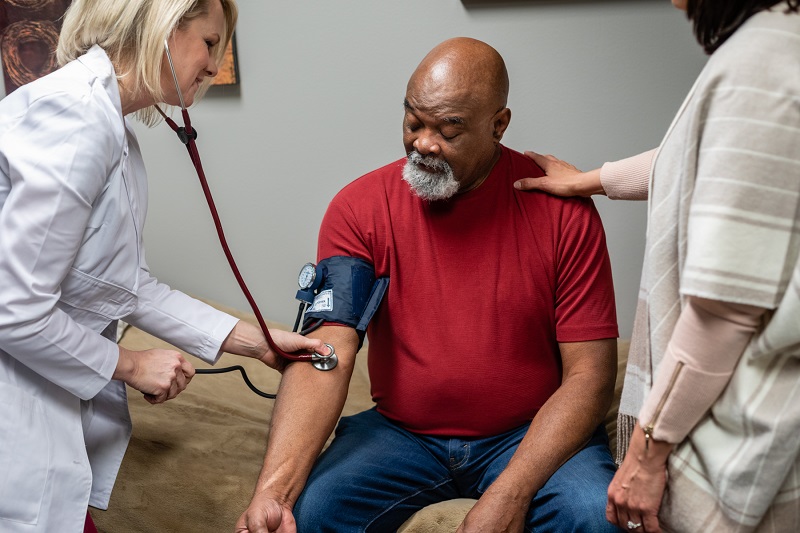What is the difference between non-medical home health care and home health care?
Non-medical home care refers to support at home that does not involve medical skill; services include light housekeeping, running errands or offering pleasant companionship.
Home healthcare is offered by a medically trained professional, like a nurse or similar healthcare provider; services include providing injections, dressing wounds or giving IV infusions—all performed in the comfort of the client’s home.
Home Healthcare
Medicare Part A (Hospital Insurance) and/or Medicare Part B (Medical Insurance) cover eligible home health services like these:
- Part-time or “intermittent” skilled nursing care.
- Physical therapy.
- Occupational therapy.
Medicare defines home health care as a wide range of health care services that can be given in your home for an illness or injury.
The type of care refers to care provided in the home by a licensed medical professional, such as a nurse or physical therapist.
Home health professionals are only authorized to perform the tasks prescribed by the person’s physician.
Home health care is a wide range of health care services that can be given in your home for an illness or injury. Home health care is usually less expensive, more convenient, and just as effective as care you get in a hospital or skilled nursing facility (SNF).
Examples of skilled home health services include:
- Wound care for pressure sores or a surgical wound
- Patient and caregiver education
- Intravenous or nutrition therapy
- Injections
- Monitoring serious illness and unstable health status
What should I expect from my home health care?
Doctor’s orders are needed to start care. Once your doctor refers you for home health services, ADMT Solutions Home Health will schedule an appointment and come to your home to talk to you about your needs and ask you some questions about your health.
Our staff will also talk to your doctor about your care and keep your doctor updated about your progress.
It’s important that home health staff see you as often as the doctor ordered.
Wound care for pressure sores or a surgical wound
In order for Medicare Part A, Medicare Part B, or a Medicare Part C plan to provide coverage, the care must meet two basic requirements:
1) The care must be “medically necessary.” This means that it must be ordered or prescribed by a licensed physician or other authorized medical provider, and that Medicare (or a Medicare Part C plan) agrees that the care is necessary and proper.
2) The care must be performed or delivered by a healthcare provider who participates in Medicare.
Non-Medical In-Home Care or Personal Care
Medicare doesn’t cover personal care or custodial care, if it is the only care you need. Most nursing home care is custodial care. Custodial care helps you with activities of daily living (like bathing, dressing, using the bathroom, and eating) or personal needs that could be done safely and reasonably without professional skills or training.
Medicare Part A (Hospital Insurance) may cover care in a certified skilled nursing facility (SNF). It must be medically necessary for you to have skilled nursing care (like changing sterile dressings).
Non-medical home care refers to support at home that does not involve medical skill; services include light housekeeping, running errands or offering pleasant companionship. Non-medical home care in particular means that caregivers do not handle skilled care like administering shots or tending wounds.
The following home care tasks are just a few examples of the types of services provided by non-medical in-home care agencies:
- Bathing
- Transferring
- Toileting
- Continence
- Medication Management
- Companionship
- Meal Preparation
- Light Housekeeping
- Transportation (doctor appt. shopping, etc.)
In short, non-medical home / custodial care is when a caregiver helps with things you would normally do for your loved one. Things like laundry, light housekeeping, and bathing, so that you can focus on being a family rather than a caretaker.

